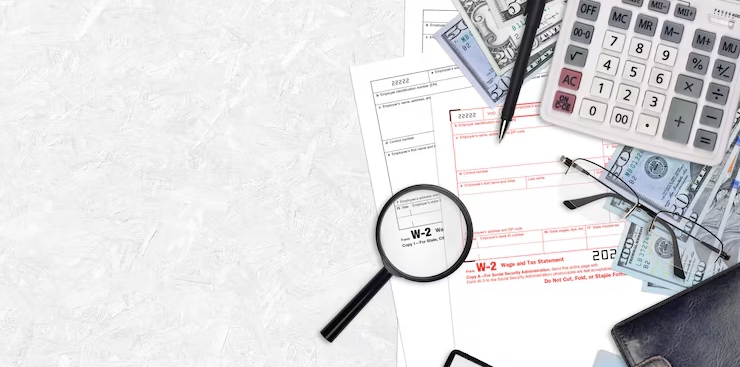In today’s fast-paced and often complex business world, maintaining financial integrity is more important than ever. Whether you’re a business owner, an investor, or a legal professional, ensuring the accuracy of financial records is essential for decision-making, compliance, and safeguarding your interests. This is where forensic accounting audits come into play. Forensic accountants use their expertise to investigate financial discrepancies and uncover hidden fraud, mismanagement, or any other illegal activities. These audits are invaluable in providing clarity and transparency in financial dealings.
In this comprehensive guide, we will explore what forensic accounting audits are, their importance, the processes involved, and how they can benefit individuals and businesses alike. If you’re ready to ensure the security of your financial future, read on.
Forensic Accounting: What it is?
Forensic accounting is the application of accounting skills to investigate financial discrepancies and fraud. It involves examining financial records, identifying irregularities, and providing detailed reports that are often used in legal proceedings. A forensic accounting audit goes a step further by using investigative techniques to uncover hidden issues that may affect the financial health of a business or individual.
Forensic accountants are often involved in cases of fraud, embezzlement, bankruptcy, divorce settlements, and other legal disputes. These professionals are trained to think like detectives, analyzing financial statements and supporting documents to find hidden patterns of irregularities that may indicate fraud or other financial crimes.
The Importance of Forensic Accounting Audits
Forensic accounting audits are crucial for several reasons. They go beyond regular audits by focusing on detecting fraud, financial manipulation, and other misconduct. Here’s why these audits are vital:
- Fraud Detection and Prevention: One of the primary reasons businesses and individuals engage in forensic accounting audits is to detect and prevent fraud. Forensic accountants have the skills to trace financial transactions, identify unusual patterns, and locate hidden assets or transactions that may be the result of fraudulent activities.
- Litigation Support: In legal disputes, financial records are often at the center of the matter. Forensic accountants provide expert testimony in court and prepare reports that can be used in litigation. Whether it’s a dispute over divorce settlements, insurance claims, or bankruptcy proceedings, forensic accountants play a vital role in ensuring that financial truths are revealed.
- Regulatory Compliance: Forensic accounting audits can also ensure that businesses are compliant with financial regulations. Mismanagement of funds or a failure to follow appropriate financial practices can lead to severe legal and financial repercussions. A forensic audit can help identify areas of non-compliance, thereby preventing future problems.
- Asset Protection: For business owners, forensic audits offer a way to protect their assets from fraud, theft, or other illicit activities. By reviewing financial statements and transaction records, forensic accountants can spot red flags before they result in significant financial losses.
- Improving Financial Transparency: Forensic audits provide greater transparency and accountability in financial reporting. This is especially important for stakeholders, including investors, creditors, and regulators, who rely on accurate and honest financial information to make informed decisions.
The Forensic Accounting Audit Process
A forensic accounting audit is an intricate process that requires attention to detail, thorough investigative techniques, and financial expertise. The steps involved in a forensic audit may vary depending on the specific objectives, but here is a general overview of what the process entails:
- Engagement and Planning
The first step in any forensic audit is understanding the specific objectives of the investigation. Are you looking to uncover fraud? Do you need expert testimony for legal proceedings? The forensic accountant will work with you to determine the scope of the audit, including what areas need to be investigated and the resources required.
- Data Collection and Review
Once the objectives are clear, forensic accountants begin gathering and reviewing financial data. This may include bank statements, invoices, tax returns, contracts, and other financial records. The goal here is to identify any inconsistencies, irregularities, or patterns that could indicate fraudulent activity.
- Detailed Analysis
Forensic accountants use advanced tools and techniques to analyze the data they’ve gathered. They may look for discrepancies between financial statements and actual cash flows, track unusual transactions, or investigate hidden assets. They also look for any behavior that may suggest mismanagement or fraudulent intentions.
- Investigative Procedures
The forensic accountant will then perform more detailed investigative procedures to dig deeper into the financial records. This may involve interviewing employees or third parties, subpoenaing additional documentation, and working closely with legal teams to uncover hidden truths.
- Reporting Findings
Once the audit is complete, the forensic accountant will prepare a detailed report outlining their findings. This report will include an explanation of any fraudulent activities or financial irregularities discovered and may serve as a key piece of evidence in legal proceedings. The forensic accountant may also present their findings in court if necessary, offering expert testimony to support the investigation.
- Resolution
Based on the forensic audit’s findings, steps will be taken to address any financial discrepancies, including taking legal action if fraud is discovered. The audit can also help with resolving any financial disputes by providing an objective, thorough review of financial records.
Benefits of Forensic Accounting Audits
The benefits of forensic accounting audits extend beyond fraud detection. Here are a few other advantages that come with engaging in a forensic accounting audit:
- Increased Accountability: Forensic audits promote accountability in organizations, encouraging businesses to adopt better internal controls and practices to prevent fraud and other financial mismanagement.
- Cost Savings: Detecting fraud early on can save businesses and individuals significant amounts of money. Forensic audits often pay for themselves by preventing losses from fraud, embezzlement, or financial mismanagement.
- Improved Business Practices: The findings of a forensic audit often reveal weaknesses in business processes or internal controls. By addressing these weaknesses, organizations can improve their financial systems and make more informed decisions in the future.
- Risk Mitigation: Conducting regular forensic audits reduces the risk of financial crimes and legal issues, protecting both individuals and businesses from potential harm.
- Peace of Mind: Knowing that your financial records have been thoroughly reviewed and any discrepancies uncovered provides peace of mind to business owners, legal professionals, and individuals alike.
Who Needs Forensic Accounting Audits?
Forensic accounting audits are beneficial to a variety of individuals and organizations. Here are some examples of who can benefit from these services:
- Business Owners: If you own a business, whether large or small, conducting regular forensic audits helps protect your assets from fraud and mismanagement. This is especially crucial for businesses that handle large sums of money or deal with complex financial transactions.
- Legal Professionals: Lawyers often rely on forensic accountants to provide expert testimony in legal cases involving financial discrepancies, fraud, divorce settlements, and more.
- Investors: Investors can use forensic accounting audits to assess the financial health of companies they are considering investing in. An audit can uncover hidden risks, such as fraudulent activities or misreported financials.
- Government Agencies: Government bodies use forensic accounting to ensure public funds are being used appropriately and to investigate any corruption or illegal activities within public offices.
- Individuals: Whether you’re going through a divorce, managing a large inheritance, or involved in a legal dispute, forensic accounting audits can help you protect your financial interests.
Forensic Accounting in Legal Cases
Forensic accounting is crucial in many legal cases, particularly when financial disputes are at stake. Here’s how forensic accounting fits into legal proceedings:
- Fraud Investigations: Forensic accountants are often called upon to investigate fraudulent activities, such as embezzlement, money laundering, or financial misreporting.
- Divorce Settlements: In divorce cases, forensic accountants may be hired to trace hidden assets or uncover financial misreporting to ensure that the division of assets is fair.
- Bankruptcy: Forensic audits are essential when dealing with bankruptcy proceedings, helping to identify potential fraud or uncover hidden assets that should be included in the bankruptcy estate.
- Contract Disputes: Forensic accountants can analyze financial documents to resolve disputes involving breaches of contract, particularly when money is owed or financial obligations are disputed.
Conclusion
Forensic accounting audits are an essential tool in ensuring financial transparency, uncovering fraud, and providing clarity in legal disputes. They help businesses and individuals safeguard their financial interests and protect themselves from potential risks. If you’re concerned about the integrity of your financial records, a forensic audit can provide the insights you need to ensure your financial future is secure.
Secure your financial integrity today with professional forensic accounting audit services. Whether you’re a business owner looking to safeguard your assets or a legal professional seeking expert insights, we’re here to help. Contact us today at (877)-399-2995 or visit Mortgage Audits Online to learn more. Secure your financial future with confidence!







